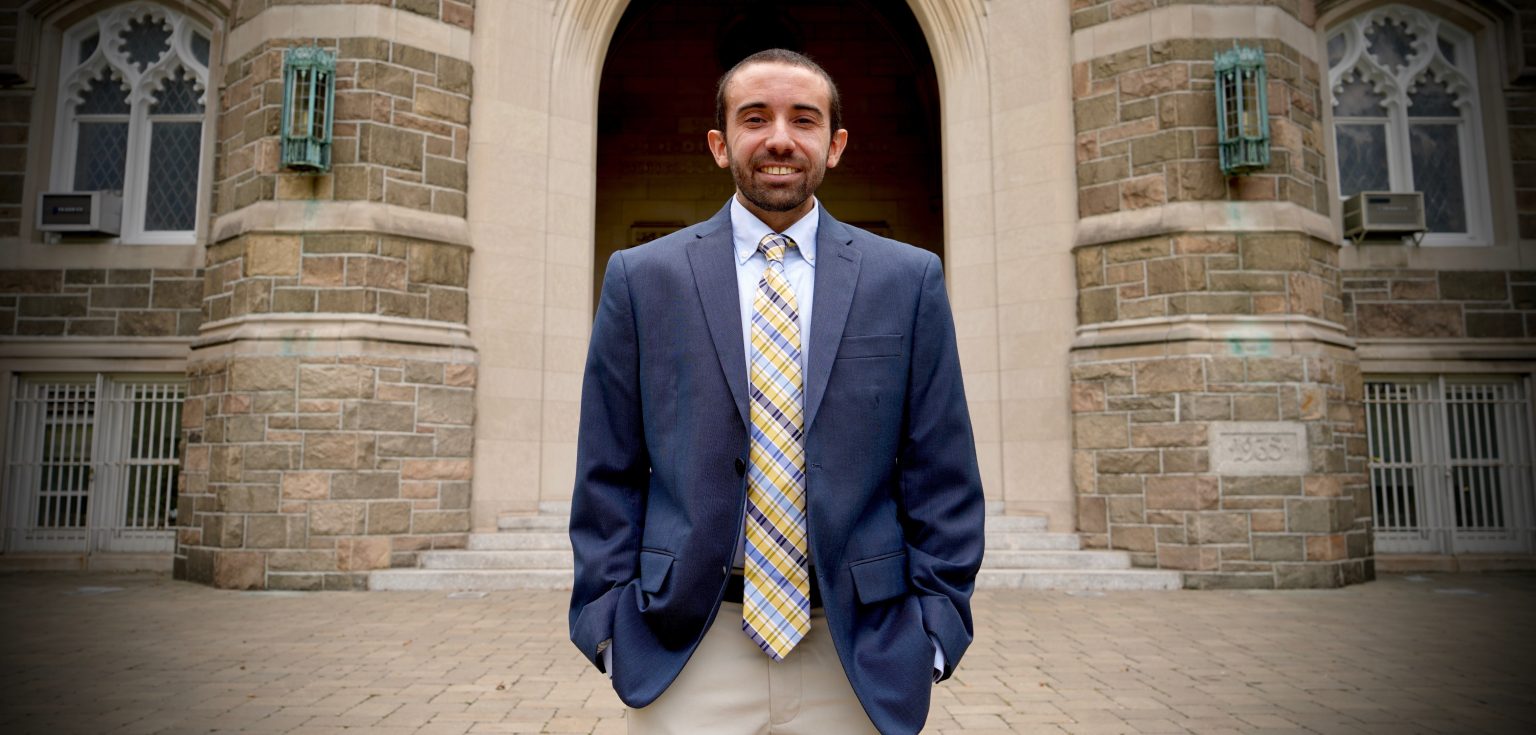Being a practical theologian means connecting with people first, said Montano, who became a visiting associate professor in practical theology and religious education at the Graduate School of Religion and Religious Education this fall.
“It begins with what people are doing to understand God, talk about God, and pray—at home, in churches, in their communities—rather than with the institution,” said Montano. “[Then] what might the institution have to catch up on in order to meet people at those practices and those beliefs that are on the ground?”
Faustino “Tito” Cruz, S.M., dean of GRE, said Montano’s work speaks to an integral part of Fordham’s mission.
“Professor Montano’s work as a practical theologian and religious educator—particularly in anti-racist pedagogy and leadership—is critical in carrying out the university’s strategic commitment to diversity, equity, inclusion, and belonging,” Cruz said.
Montano is a first-generation Cuban American from Miami. He earned a bachelor’s degree in political science from Florida International University and a master’s degree in practical theology from Barry University. This fall, he will earn his Ph.D. in theology and education from Boston College.
Over the past decade, his research has explored how theological educators can become better prepared to discuss race and ethnicity in the classroom.
“We often talk about intercultural and multicultural ministries and the way ministers can speak to the different cultures in their congregations,” said Montano, who also just started a two-year Louisville Institute postdoctoral fellowship at Fordham, a program for scholars in theological education. “But we haven’t really addressed the hurdle of racism and how racism taints the way that we look at each other.”
At Boston College, he studied how anti-racist pedagogies and assessments like the intercultural development inventory can help. He interviewed five educators from different institutions who had attempted to discuss race and ethnicity with their students. Most of them felt like they didn’t have the skills to have those conversations. In addition, the emotional pressure in the room seemed too high, Montano said.
“We need to teach theological educators—people like myself and others at Fordham, for instance—not only how to have these conversations, but how to model their curricula and pedagogies in a way that has students understand different racial, ethnic, and cultural perspectives,” Montano said.
His other goal is to cultivate young Hispanic Catholic leaders. In a chapter of Our Catholic Children, Ministry with Hispanic Youth and Young Adults (Our Sunday Visitor, 2018), he wrote about how Hispanic youth need more opportunities to lead and get involved—not just “in their own little corner of Hispanic ministry,” but in the church at large. It’s even more critical, given the large Hispanic Catholic community in the U.S., he said.
This semester, Montano is teaching an online course called Youth and Adult Ministry. He’s aiming to give his students—mostly middle-career adults who are ministers and educators—a good understanding of the psychological and spiritual development of youth and young adults, with a focus on helping them see the needs of youth and young adult populations that often go unnoticed.
Next spring, he will teach a special topics course he developed himself: Foundations for Intercultural Ministry and Religious Education. Using different tools and assessments, his students will confront their hidden biases. Then, after participating in group activities that foster intercultural dialogue and perspective, they will design “anti-racist plans” for their own ministries.
“I’ll have our students look at themselves, look at their own cultural and racial histories, tell their own stories, and then understand each other’s stories,” Montano said.
In the two years that Montano teaches at Fordham, he said he hopes to “move the needle forward.”
“The students in our school [GRE] are already leaders. They’re already making an impact in the communities they belong to,” Montano said. “I’d like to bring some of this pedagogy into their own practice—not just to help them change their communities, but to help create those sparks that can begin to change the way we do things in this country.”

